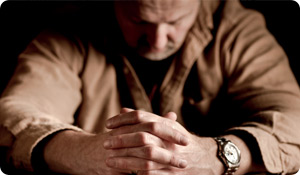
Grief is the experience of loss and affects all aspects of our lives, and at some point, everyone suffers from it. Not only is grieving painful, it can take a toll on our mental and physical health.
According to an excerpt from the book Coping With Grief and Loss: A Guide to Healing, grief goes hand in hand with a wide range of physical and mental problems, including memory impairment, difficulties concentrating, nutritional deficiencies, and poor work performance. Stress and grief may cause or exacerbate existing physical ailments.
How Does Grief Affect the Body?
Physically
Grief affects us in many ways: loss of appetite, fatigue, heart palpitations, tightness in chest, weakness, lack of energy, gastrointestinal disturbances, and weight gain or loss. Many of these symptoms are not harmful and usually subside over time. However, grief can compromise our immune system, putting us at risk for colds and serious illness.
Grief is also associated with more severe outcomes, including premature death. Research has found a significant increase in excess mortality (above what we'd normally expect) from accidental, violent, and alcohol-related deaths following loss. Individuals are more likely to commit, or attempt, suicide during times of grief.
Furthermore, emotional triggers such as grief may increase your risk for heart attack, especially if you are already at high risk. A study in Circulation reported that at-risk individuals are 20 percent more likely to suffer heart-related deaths during spousal bereavement. Those who are newly widowed are 21 times more likely to have a heart attack in the first 24 hours after learning their spouse has died. This elevated risk persists for at least a month, although it gradually declines over time.
Emotionally
It's common for people who are grieving to feel myriad emotions-sadness, anxiety, anger, relief, fear, loneliness, guilt, abandonment, ambivalence, and despair. Unresolved grief may lead to depression or even post traumatic stress disorder.
Everyone experiences grief in his or her own way. Over time, most people adjust to the loss and put their energy back into other activities and relationships.
If you are grieving, it's important to take care of yourself and protect your health. Find time to engage in pleasurable, relaxing activities and get adequate rest. Pay attention to your nutritional and emotional needs. Some people find that setting new goals, recording their feelings in a journal, or participating in a support group helps them adjust to their loss.
Sources:
Emanuel, Linda, MD, PhD, Ferris, Frank D., MD, von Gunten, Charles F., MD, PhD, and Von Roenn, Jamie H., MD. "Loss, Grief, and Bereavement in the Setting of Cancer." Medscape Medical News. Web. 29 March 2011. http://www.medscape.com/viewarticle/739523
Hospicenet.org. "What Do We Need During Grief?" Web. http://hospicenet.org/html/grief_needs.html
Center for Grief & Healing. "Taking Care of Yourself." Web.
http://www.hns.org/Portals/1/Taking%20Care%20of%20Yourself%20Handout.pdf
Hirsch, Michael, M.D. "Grief's Effects on Mind and Body." Coping With Grief and Loss: A Guide to Healing. Boston. Harvard Health Publications, 2010. Excerpt. Web. http://www.health.harvard.edu/special_health_reports/coping-with-grief-and-loss
Loggia, Debra. "Can You Really Die From a Broken Heart?" Keep in Touch. Web. February 2011. http://www.jeffersonhospital.org/Keep-In-Touch/February-2011-Issue/can-you-really-die-from-a-broken-heart.aspx
Mayo Clinic. "Broken Heart Syndrome." Web. 11 February 2011.
http://www.mayoclinic.com/health/broken-heart-syndrome/DS01135
Mostofsky, Elizabeth, MPH, ScD, Maclure, Malcolm, ScD, Sherwood, Jane B., RN, Tofler, Geoffrey H., MD, Muller, James E., MD, and Mittleman, Murray A., MD, DrPH. "Risk of Acute Myocardial Infarction After the Death of a Significant Person in One's Life." Circulation 125 (2012): 491-496. Web. 9 January 2012. http://circ.ahajournals.org/content/125/3/491.long





